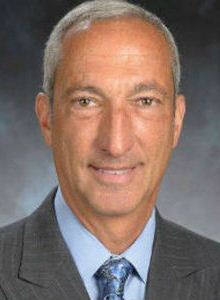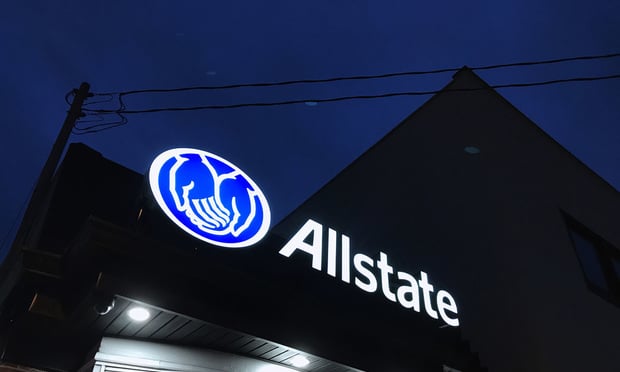 The National Association of Insurance Commissioners (NAIC) Executive Committee meeting erupted into a biting referendum on the NAIC itself Monday, with Connecticut Insurance Commissioner Tom Leonardi motioning to hire an outside firm to conduct a corporate-governance review.
The National Association of Insurance Commissioners (NAIC) Executive Committee meeting erupted into a biting referendum on the NAIC itself Monday, with Connecticut Insurance Commissioner Tom Leonardi motioning to hire an outside firm to conduct a corporate-governance review.
Leonardi would like the review to address a variety of so-called poor decisions, some by an "imperial presidency."
The motion was rejected by the Executive Committee, and debate was shut down to the full body after many commissioners said a corporate-governance review might well be needed, but the proposal should be vetted by the Corporate Governance Committee first.
The events occurred at the NAIC's Fall National Meeting in Washington.
Leonardi acted after sending a letter to commissioners accusing the NAIC of embarrassing and treacherous governance issues, such as being throttled by a small cabal of members, and of being its own worst enemy through its clumsy, one-sided and fraught process of decision-making.
The Dec. 11 letter alleged that one of the most egregious examples by the Executive Committee was the decision by last year's president, Kevin McCarty of Florida, "to give the Federal Insurance Office (FIO) one of the NAIC's three seats on the International Association of Insurance Supervisors (IAIS) Executive Committee."
The Leonardi letter took to task the leadership schisms and factions that have been well-publicized in recent weeks, such as some commissioners' decision to turn down an invitation to a meeting with President Obama. The decision was seen by those in certain political circles as a colossal snub.
Indeed, Leonardi and other commissioners have spoken strongly about the whole affair, saying that turning down a sitting president is appalling, and makes the NAIC appear doomed if it wasn't before.
Washington Commissioner Mike Kreidler is quoted in the letter regarding the invitation snub, stating, "This could be so bad that it might be the pivotal point we later recognize that doomed state-based regulation. Talk about a self-inflicted wound!"
Leonardi continues in the letter, "If we cannot fix these governance issues, then others, including industry and the federal government, would be right to question whether we are up to the task of regulating the largest insurance market in the world."
He also accused the NAIC leadership of cronyism, and being under the "undue influence of two former [unnamed] commissioners," who continue to undermine the organization, and who are now after CEO Sen. Ben Nelson.
Other commissioners interviewed said that they support efforts to hire an outside consultant if needed, but want to take advantage of the process in place: having the Corporate Governance Working Group look at the matter and discuss it during the commissioners' retreat in Arizona in early February.
New York Superintendent Ben Lawsky was the only state regulator who seconded Leonardi's motion before non-Executive Committee members were prevented from speaking by a point of order. Later, commissioners from California and Illinois expressed disappointment that they could not air their views on corporate governance.
California Insurance Commissioner Dave Jones said he was "astounded" that he and others were not given an opportunity to speak on "an issue of this importance at the NAIC."
New York is concerned that if the proposal did not go through, the outside consultant might never see the light of day—that it could be lost in committee.
The New York Department of Financial Services uses outside consultants, as does the NAIC, as it has for years on issues such as principles based reserving (PBR.)
"We are an instrumentality of the states, a $100 million non-profit, Leonardi told reporters later. "So we should be open and transparent."
He said the issues had been brewing for some time and that he had been struggling for two years internally at the NAIC with corporate-governance issues. He said the letter was supported by his Governor, Dannel P. Malloy.
Missouri Insurance Director John Huff, who chairs the ad hoc Executive Committee group on corporate governance, noted that the NAIC continues to work on its governance practices and embarked on an overall review of them earlier this year.
A review and focus on open meetings are big features of the initial work, Huff noted, saying that the group has begun a review of NAIC bylaws and other issues and will incorporate the proposal to seek an outside consultant as the work continues.
Leonardi, in his letter, made it clear he was not a fan of the FIO Director Michael McRaith's role in international matters, although he did not refer to him by name.
Leonardi wrote that, at first, not one NAIC staff member agreed to giving a seat to the FIO on the IAIS Executive Committee, but the decision had already been made unilaterally before the seat had been given up, and it was then that the "FIO director had the audacity to demand that he take the seat held by our NAIC CEO."
He said the lack of due process in the appropriate committees resulted in a blunder that was one of the "most strategically important decisions/mistakes in the organization's 130 year history."
Various state commissioners defended their roles, and while many support corporate-governance oversight and a possible consultant, most at the NAIC meeting did not want to participate by name in the article.
Kansas Insurance Commissioner Sandy Praeger, who Leonardi said made the "egregious and unfortunate choice" to shut off public discussion, did say that she was using a procedure after the different sides had been aired and it seemed that this debate should be done through the regular process. Commissioners like Praeger asked what the rush was to hire a consultant before first nailing down the issues and making proposals.
Leonardi clearly feels attacked, many observers said at the meeting, aware of the changing dynamics in NAIC leadership with the ascension of Adam Hamm of North Dakota as NAIC president. Louisiana Commissioner Jim Donelon, who supports Leonardi, sunsets as top leader.
Leonardi made it clear he thinks someone else is running the table now without regard to procedure, whether through a "cabal," or through other means that could use a good impartial review and overhaul in administrative processes.
"My efforts as the chair of the NAIC's International Committee (and as someone widely recognized as a credible and able defender of and spokesman for our national state-based system of insurance regulation) have also been undermined by this so called leadership," Leonardi said.
Want to continue reading?
Become a Free PropertyCasualty360 Digital Reader
Your access to unlimited PropertyCasualty360 content isn’t changing.
Once you are an ALM digital member, you’ll receive:
- Breaking insurance news and analysis, on-site and via our newsletters and custom alerts
- Weekly Insurance Speak podcast featuring exclusive interviews with industry leaders
- Educational webcasts, white papers, and ebooks from industry thought leaders
- Critical converage of the employee benefits and financial advisory markets on our other ALM sites, BenefitsPRO and ThinkAdvisor
Already have an account? Sign In Now
© 2025 ALM Global, LLC, All Rights Reserved. Request academic re-use from www.copyright.com. All other uses, submit a request to [email protected]. For more information visit Asset & Logo Licensing.








